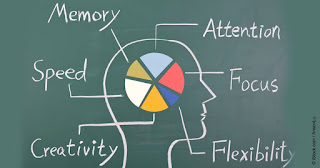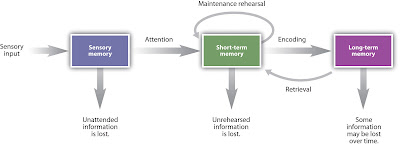Goal Statements - The Five Step Approach
1.WHAT ARE GOALS?
Experts define goal setting as the act of selecting a target or objective you wish to achieve. Fair enough. That definition makes sense, but i think there is a much more useful way to think about setting goal.
It is easy to sit around and think what we could do or what we like to do. It is an entirely diffrent thing to accept the tradeoffs that come with our goals. Everybody wants a gold medal. But a few people want to train like Olympian.
This gives us the first key inside. Goal setting is not only choosing the rewards you want to enjoy, but also the costs you are willing to pay.
1. goals should be self-chosen.
- goals that are set by your parents, teacher, or friends may not always work for you.
- you need to determine or choose your own goals.
- you need to decide what you want to accomplish, if you set your own goals, you will be more motivated to achieve them
2. goals should be moderately challenging
- one way to set moderately challenging goals is to consider what you have done in the past.
- goals can always be revised, if you discover you can achieve more than you originally set out to accomplish.
3. goals should be realistic.
- think about whether your goal are attainable . ex it would be unrealistic to expect to get a b or better in calculus if your math background is very weak and your high school grades in math were never higher than a c.
- to set realistic goals, you must carefully evaluate your chances of achieving each goal.
4. goals should be measurable
- goals is measurable if we can determine whether we reached it.
- it would be much easier to measure our success if you had aimed for A or B
- it would be difficult to determine whether we achieved our goal if we just want to ' do well in a course'
5. goals should be specific.
- the more specific our goals, the more motivated we will be to achieve them.
6. goals should be finite
- goals need to have a limited time frame
- it is importance to set deadlines for all of our goals.
7. goals should be positive.
- you will always do better if we working toward something ( when we have positive attitude)
- avoid using words like try, think, hope, when we describe our goals
- negative goal statement are not motivating us.
2. CHARACTERISTICS OF GOALS
1. Set Goal that motivated YOU
- When you set a goal, it has to mean something and there has a target to achieving it. So, start with the goals that are highest on your priority list. It easy to be overwhelmed by everything that need to be done, so start it simple.
What you get by achieving your goals is not as important as what you become by achieving your goals.
Henry David Thoreau, American author and philosopher. 2. Set Smart Goal.
There are five that we gonna to talk which is S M A R T
S - SPECIFIC
- Define the goal as much as possible with no unclear languange
- Who is involve, What do I want to accomplish, Where it will be done, Why am I doing this (reason, purpose, Which requirements do I have?
M - MEASURABLE
- Track the progress and measure the outcome
- How much, how many, how will I know when my goal is accomplished?
A - ATTAINABLE
- Is the goal reasonable enough to be accomplished. How so?
- Make sure the goalis not out or reach or below standard performance.
R - RELEVANT
- Is the goal worthwhile and will it meet your need?
- Is each goal consistent with the other goals you have established and fits with your immediate
long term plans?
T - TIME - BOUND
- Your objective should include a time limit. Example: I will complete this misson this week/day
- It will establish a sense of urgency and prompt you to have better time management.
Some example that we can make our GOAL Creative .
1)

2)

3)

4)

5)

6)

7)

8)

USING THE LEARNING MANAGEMANT SYSTEM
- is a software application that allows instructors to create, document, track, report and deliver courses to student.
- it also help the instructors to deliver material to the students, administer tests and other assigments, track student progress, and manage record-keeping.
- in UiTM, the Learning Management System (LMS) called i-learn.
- i-learn aims to help students increase the skills of technology use, and improve knowledge acquisition and information sharing.
ACCESSING I-LEARN
i-learn can be accessed at: http://i-learn.uitm.edu.my/v2/ OR http://i-learn.uitm.edu.my/v3/home/
 INSTRUCTIONS FOR INSTRUCTORS
INSTRUCTIONS FOR INSTRUCTORS
- How to use i-learn
- The main functions such as Log In, Announcement, Group Forum, My Drawer and Members also be introdeced to the students.
REFERENCES / RESOURCES
Hanni Shahira (2017). I-Learn Student Portal. Retrieved from
http://prezi.com/ uitm-i-learn-student-portal
3. LONG- AND SHORT-TERM GOALS
- long-term goals are the objectives you set for yourself for the end of the year, for four or five years from now, or even for a lifetime.
- short-term goals can be set for an hour from now, for the end of the day, week, month, or term (or semester). ex: short term goals include things like completing a reading assignment, writing an essay, getting a b in a course, getting off probation, or making the list
- think of your shortterm goals as steps toward achieving the long-term goals you've set for yourself
4. ACADEMIC AND PERSONAL GOALS
- academic goals- relate to your course work. they include things like going to class, completing assignments, and preparing for exams.
- personal goals- like making new friends, participating in clubs or sporting events exercising, or even doing your work.
MY GOAL
- Exercise everyday such as jogging, push up, jump and walk.
- Sleep early at 11 pm and wake up at 5 am.
- Can spend enough money for buy food, and some cloths
- Eat completely base on plan meal plans and not skip Breakfast
- Memorize most important key work that cant forget
- Can manage time such as build time table for "today planning"
5. FIVE STEP APPROACH TO SETTING GOALS
step 1 : tentative goal statement
ex : i want at least a b in biology
step 2 : list of obstacles
ex : i have trouble following the lecture, and i struggle to take notes
step 3 : list of resources
ex : i read the chapter before the lecture. i rewrite my notes afterward
step 4 : revised goal statement
ex : i try to earn a b in biology
step 5 : polished goal statement
ex : i will achieve a b in biology this semester


























































